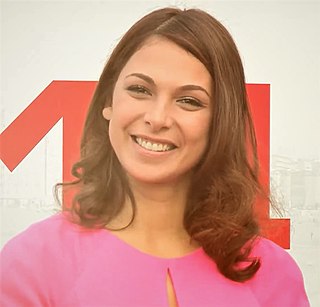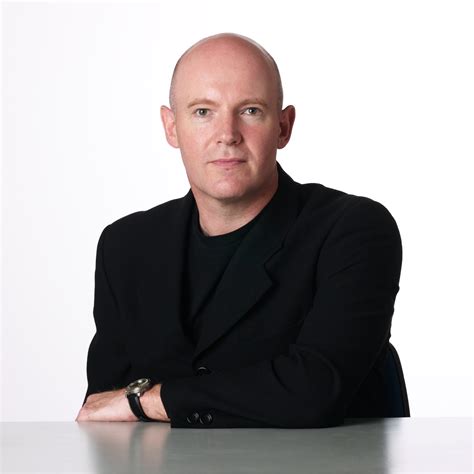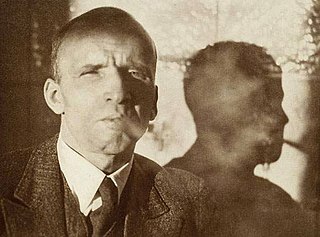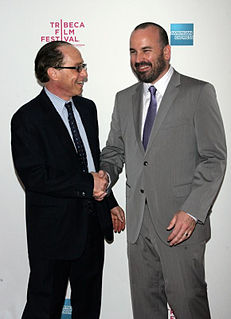Top 1200 Linear Time Quotes & Sayings - Page 6
Explore popular Linear Time quotes.
Last updated on April 21, 2025.
It's easy to fall into the trap of assuming that a new technology is very similar to its predecessors. A new technology is often perceived as the linear extension of the previous one, and this leads us to believe the new technology will fill the same roles - just a little faster or a little smaller or a little lighter.
I always liked creativity, whether it was to draw or sew - any creative assignment I was getting from school, or just on my own. I love people and behaviors, and I'm interested and fascinated by why we do what we do. And I wanted to be a therapist, to be honest. Maybe wirking in film combines the two worlds, in a not super-linear way, but it definitely feeds both my two passions.
An oral society develops both sides of your brain, and the utilization of your brain is more complete than in a linear education module. The written word limits your brain capability by immediately focusing on one area. You don't have any peripheral vision. It immediately divorces you from the environment.
Time is the most precious gift in our possession, for it is the most irrevocable. This is what makes it so disturbing to look back upon the time which we have lost. Time lost is time when we have not lived a full human life, time unenriched by experience, creative endeavor, enjoyment, and suffering. Time lost is time not filled, time left empty.
I was never very good at math and science, to be honest, so it's fun to play a character that is so scientific and mathematical, and whose brain functions at such a high pace. The biggest difference is that Maura is very linear in her thinking and very logical. I'm not quite like that. I'm much more laid back and not quite so type A. That's the big difference.
Like all major transitions in human history, the shift from a linear to a circular economy will be a tumultuous one. It will feature heroes and pioneers, naysayers and obstacles, and moments of victory and doubt. If we persevere, however, we will put our economy back on a path of growth and sustainability.
Generally I start writing when I have even the smallest idea of how a book is going to go, because the physical process of writing itself keeps the mind active and focused on the job at hand. Usually I write in about 5 drafts, but that simply means there are 5 definite times when I go in a linear fashion from the beginning to the end of the book.
Linear programming is viewed as a revolutionary development giving man the ability to state general objectives and to find, by means of the simplex method, optimal policy decisions for a broad class of practical decision problems of great complexity. In the real world, planning tends to be ad hoc because of the many special-interest groups with their multiple objectives.
Evidently, there are many great American writers. But sometimes it can feel as though American fiction is dominated by relatively linear narrative form, with a heavy emphasis on psychological realism. If you limit yourself to a certain kind of American literary fiction, it's easy to forget about the different kinds of books that are being written. You can forget to be ambitious, both as a reader and a writer.
When I make music I try to be as honest as I can to how I experience the world. Like how you arrange a piece of music formally. I tend to observe a lot of chaos or whatever, the fragmentation and melancholy. That's the filter I synthesize my world view with. If I didn't formally have that chaos and it was really linear, it would make my skin crawl.
Genes are effectively one-dimensional. If you write down the sequence of A, C, G and T, that's kind of what you need to know about that gene. But proteins are three-dimensional. They have to be because we are three-dimensional, and we're made of those proteins. Otherwise we'd all sort of be linear, unimaginably weird creatures.
When Western people train the mind, the focus is generally on the left hemisphere of the cortex, which is the portion of the brainthat is concerned with words and numbers. We enhance the logical, bounded, linear functions of the mind. In the East, exercises of this sort are for the purpose of getting in tune with the unconscious--to get rid of boundaries, not to create them.
What I remove from my writing is linear context. It's not really important to me, because it doesn't give me chills to see, "you flip the latch and the lock opens and then you can open the top of the chest and inside the chest is this." That doesn't give me chills, to think in that vein. So I've always kind of avoided it.
To do justice to modern technology's rigid linear structure, to the lofty gridwork of cranes and bridges, to the dynamism of machines operating at one thousand horsepower - only photography is capable of that. What those who are attached to the painterly style regard as photography's defect, the mechanical reproduction of form - is just what makes it superior to all other means of expression.
Now I began to understand art as a kind of black box the reader enters. He enters in one state of mind and exits in another. The writer gets no points just because what's inside the box bears some linear resemblance to "real life" -- he can put whatever he wants in there. What's important is that something undeniable and nontrivial happens to the reader between entry and exit.
In 1990, if I wanted a pair of Calvin Klein jeans I had seen in a magazine, I'd head to the mall, sift through piles of inventory to find my size, try them on, ask the opinion of the often inexperienced sales associate, wait in line to check out, pay, and head home. The process was linear and ripe for improvement.
Every cell in our body, whether it's a bacterial cell or a human cell, has a genome. You can extract that genome - it's kind of like a linear tape - and you can read it by a variety of methods. Similarly, like a string of letters that you can read, you can also change it. You can write, you can edit it, and then you can put it back in the cell.
There is a tendency in my work toward minimalism, in terms of stripping away the unnecessary. I am seeking a tightly ordered gestalt, usually. I've always felt a strong affinity towards Mondrian's work. I understand the importance of those subtle planar and linear modulations he made in the course of building up the incredible visual tension in his work.
You see, Dad, Professor McLuhan says that the environment that man creates becomes his medium for defining his role in it. The invention of type created linear, or sequential thought, separating thought from action. Now, with TV and folk singing, thought and action are closer and social involvement is greater. We again live in a village. Get it?
I realized that every second that I'm alive, the world cares less about me. It's just a very linear, downward progression. And it sounds cynical because you guys are young and you're full with life. I want you to understand - this is it. You have nothing to look forward to because you're peaking. If you're not having fun now, kill yourself. I don't mean that in a bad way, just - it's not worth it to go forward.
There's no linear narrative - the structure is more like a series of variations on a theme (how identity is shaped by language), with the past constantly bleeding into the present, dreams into reality. And the language, while incredibly lyrical in places, also has this underlying dissonance, the sense of it having itself been translated.
Reading is not a straightforward linear movement, a merely cumulative affair: our initial speculations generate a frame of reference within which to interpret what comes next, but what comes next may retrospectively transform our original understanding, highlighting some features of it and backgrounding others.
The relationship between art and a job is not quite linear, but I really love any and all manifestations of art, really respect any kind of artistic impulse, whether it's paintings and sculptures or really good filmmaking or music. I really see the relationships between these different mediums as very fluid.
I feel very protective in the first draft, when all the pieces are coming together. I work in a way that is not linear or chronological at all, even with the short story. I will just be writing bits and pieces, and then when I have all the pieces on the table, that for me is when it feels like the real work begins.
All your clear and pleasing sentences will fall apart if you don't keep remembering that writing is linear and sequential, that logic is the glue that holds it together, that tension must be maintained from one sentence to the next and from one paragraph to the next and from one section to the next, and that narrative - good old-fashioned storytelling - is what should pull your readers along without their noticing the tug.
Simplification seems to be the removal of objects for the goal of making a graphic as clean and uncluttered as possible. Whereas, with optimization, it feels like there's more intelligence in that. It maintains the usability, but tries to distill something down to its essence. But with some data-sets you have to be careful because, as with linear, print journalism, it's easy to shave off facts that don't quite fit the flow.
I think that people talk about radical life extensions as if it is just one linear kind of journey, when actually what's going to happen is we're going to radically expand our lives billions and billions of times in every way, in every dimension and so I'm looking forward to things I can't even imagine yet.
All directors make films in individual ways. But the classical kind of view of filmmaking is that you have a script, and it's very linear. There's a script, then you're going to shoot the script ,and then you cut that, and then that's the end of the film. And that's never really been how I've seen it.
Text is linear; it is black and white; it doesn't zoom around the page in 3-D; it isn't intelligent by itself; in fact, in terms of immediate reaction it is quite boring. I can't imagine a single preliterate was ever wowed at the first sight of text, and yet text has been the basis of arguably the most fundamental intellectual transformation of the human species. It and its subforms, such as algebra, have made science education for all a plausible goal.
I feel like the big twist shows are now off the table. I think Westworld was probably the last one to Trojan horse this idea of the young man in black. They were doing non-linear storytelling, but disguising it. Jonah Nolan and Lisa Joy have spoken openly about how they just didn't think people were going to figure it out that fast.

























































